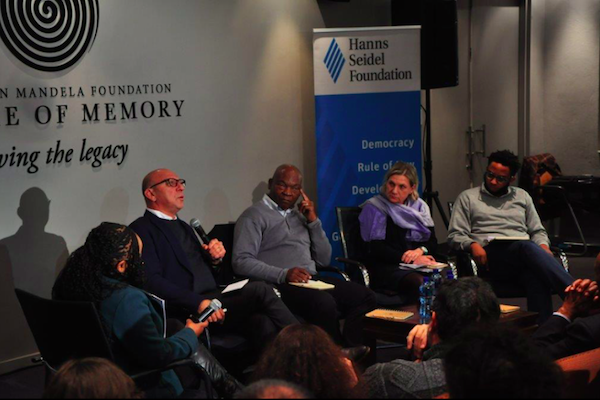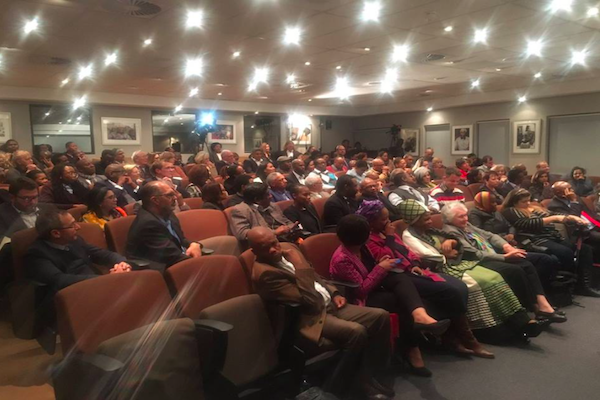Mandela's Economic Legacy
This was the theme of a recent panel discussion in the full auditorium of the Nelson Mandela Foundation in Johannesburg. The event, supported by the Hanns Seidel Foundation, was shown on TV and followed intensely on social media as well, using #MandelaEconomy and @NMFDialogues.
Trevor Manuel, Finance Minister under presidents Nelson Mandela and Thabo Mbeki, Ayabonga Cawe, program manager at Oxfam South Africa, Mandla Langa, well known writer, and Professor Pippa Green, journalist and researcher, reflected and debated on stage with moderator Siki Mgabadeli, award-winning financial journalist.
South Africa was in an economic crisis when the Apartheid government under FW de Klerk unbanned the ANC and other liberation movements and released Nelson Mandela from prison. The panel discussed the negotiations in the early 1990s that led to the first free and fair elections of 1994, and it debated the policy choices made by the democratic government under Nelson Mandela.
Current developments around the accusations of systemic corruption and “State Capture” leveled against certain forces in government and the ruling party, as well as the need to secure good governance and democracy in the country and potential strategies to achieve these goals, became part of the deliberations.
During the following lively engagement with the audience, participants emphasized that today’s South Africa must recalibrate its public discourse and urgently discuss the real issues the country needs to address, in productive ways. A fact based analysis of government's and society's successes and failures, of strategy and potential policies is necessary to find and implement realistic new solutions and to achieve higher growth rates in a more inclusive economy.
Most agreed that a generation after the end of Apartheid, the country is in a political crisis. A fragile economy, the highest inequality in the world and an education system that largely fails the poor call for renewed, innovative efforts and cross-sector collaboration to jointly create social value and to revive and hopefully fulfill "the dream deferred".
Sello Hatang, CEO of the Nelson Mandela Foundation, spoke about further dialogues being planned and diverse other projects of the Foundation that are underway to work with diverse stakeholders towards tangible solutions.
You can access an article with reflections on the theme of the event which was published by a Dialogue Analyst of the Nelson Mandela Foundation here.


